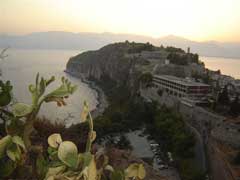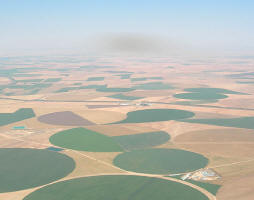 Remediation of agricultural diffuse NITRAte polluted waters through the implementation of a permeable reactive BARrier
Remediation of agricultural diffuse NITRAte polluted waters through the implementation of a permeable reactive BARrier
This is a pan-European EC LIFE Environment Project to demonstrate a passive
system for the removal of nitrates derived from agricultural practices. Its
overall purpose is to bridge the gap between research and development
results and their large-scale application.
| Project number | n/a | ||
|---|---|---|---|
| Subject(s) | AGRICULTURE , ANALYSIS AND TESTS , CHARACTERISTICAL PARAMETERS OF WATERS AND SLUDGES , DRINKING WATER AND SANITATION : COMMON PROCESSES OF PURIFICATION AND TREATMENT , PREVENTION AND NUISANCES POLLUTION , SANITATION -STRICT PURIFICATION PROCESSES | ||
| Acronym | NITRABAR | ||
| Geographical coverage | United kingdom, Denmark, Germany, Greece, Malta | ||
| Budget (in €) | 1489298 | ||
| Programme | LIFE | ||
| Web site | http://www.nitrabar.eu | ||
| Objectives | NITRABAR aims to provide a viable approach to capture and treat nitrate
associated with the primary sources of diffuse pollution arising from
agriculture. It is intended to enable EU stakeholders to protect surface
waters and aid the implementation and development of EU policies. Specific aims of the project are: 1. Demonstrating the application of the NITRABAR system in an agricultural settingThis includes site characterization and the design and installation of the system accounting for farming practices and an extensive monitoring programme. Read more about the demonstration site. 2. Enabling others to replicate the system throughout Europe.This will be achieved by sharing information using literature, workshops and reports. Read more about news and events. In order to achieve these aims, NITRABAR has assembled a pan-European partnership. The partners bring together both knowledge and views from their own countries which will enable the project to account for the broader European nitrate issue |
||
| Results | In the first year, the project team will be obtaining information from the demonstration site to assist the design and positioning of the system. The system itself will be installed by the end of this first year. This will then be intensively monitored for two years to provide sufficient information to demonstrate its effectiveness over the various seasons. | ||
| Period | [01/12/2005 - 31/03/2009] | ||
 you are not logged in
you are not logged in





